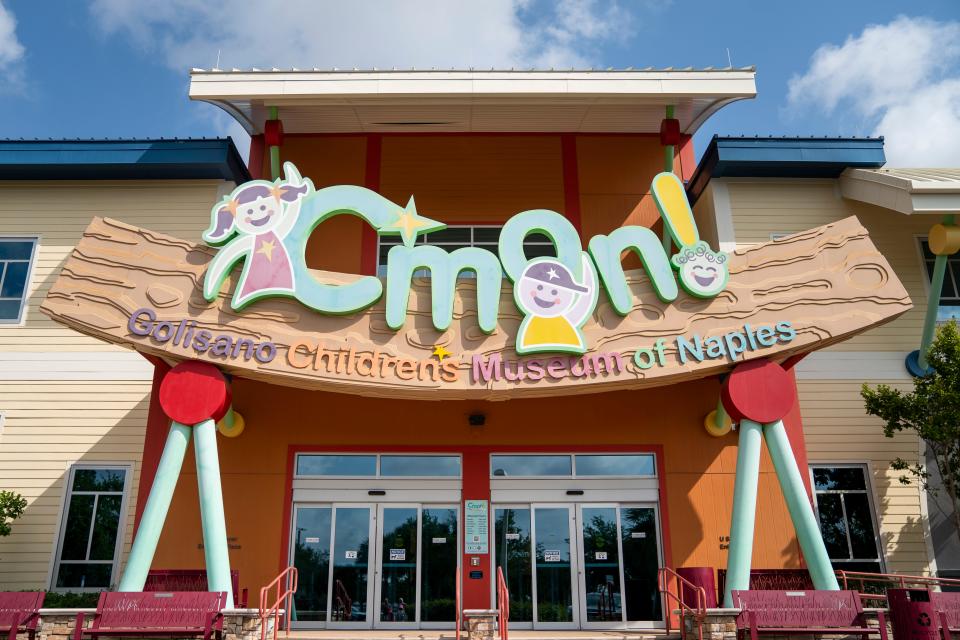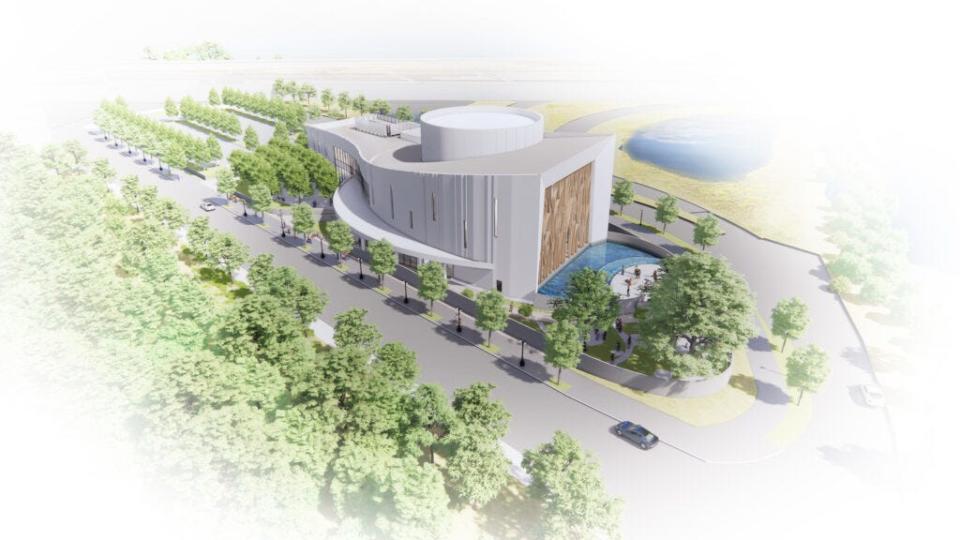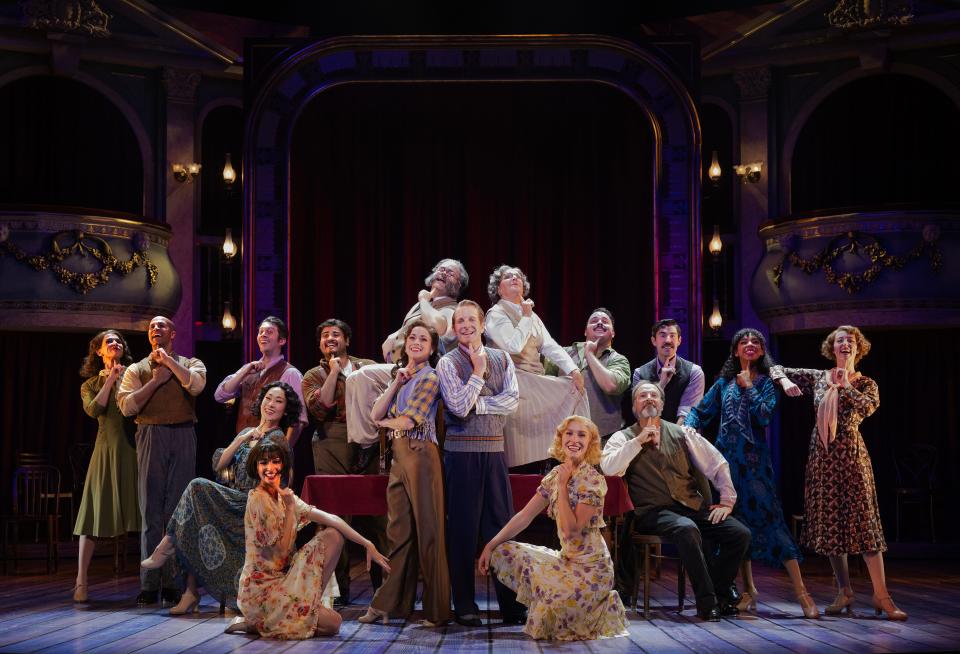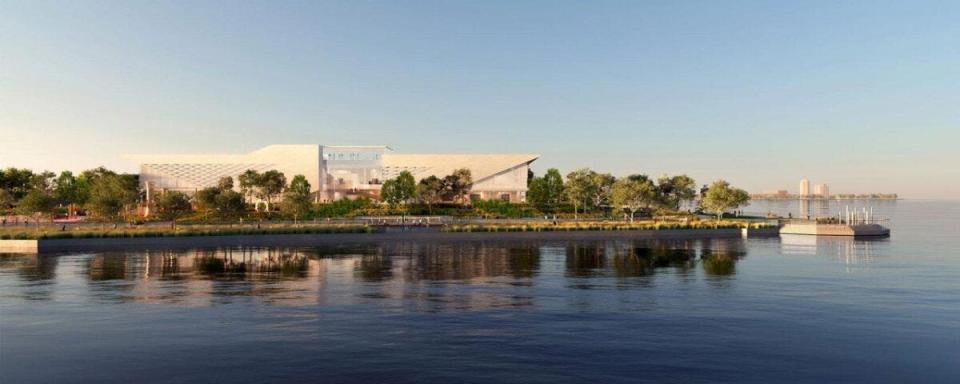Florida increases arts funding for legislator earmarks, decreases arts and culture grants
The Florida legislature nearly doubled the amount of overall money spent on arts and culture programs and organizations in the new budget compared to last year, but not in the way arts advocates had requested or expected.
Allocations for fiscal year 2025 total $93.9 million, funding 669 different arts and culture projects or organizations across the state. Just $32 million of that is allocated for grants overseen by the Florida Department of State’s Division of Cultural Affairs, while the rest is earmarked for what are known as member projects.
A year ago, the state budget included about $58 million for arts and culture programs, with $43.3 million for grants and $15 million allocated for special member projects. The $43.3 million represented a $16 million cut from the previous year.

The largest of the four categories of grants overseen by the state's Division of Cultural Affairs, Cultural and Museum grants, received $26 million to be shared by 625 organizations, which will get less than half of what they qualify for under the state's long-established vetting and evaluation system.
That means that despite a major boost in overall funding, most non-profit arts and cultural organizations face significant cuts in state funding.
But legislators spent lavishly on individual member projects, with more than $54 million earmarked for a variety of special programs. Gov. Ron DeSantis may approve or veto any of these items individually before signing the budget.
They include $5 million for a new Holocaust Museum for Hope and Humanity in Orlando; $3.7 million for the Jacksonville Museum of Science and History Genesis Project; $1 million for the design of the Center for Arts and Innovation in Boca Raton; $1.5 million for rehabilitation of the Historic Bank of the Everglades building; $2.5 million for the Pinellas Science Center; and $1.5 million for the Golisano Children’s Museum of Naples Early Learning Center.

In addition, the Florida Holocaust Museum will receive $750,000 for preserving Holocaust survivor testimonies and artifacts, the Florida Civil Rights Museum in St. Augustine will receive $250,000, and the Perlman Music Program/Suncoast will receive $200,000 to support its annual winter residency in Sarasota.
For years, advocates led by the non-profit Florida Cultural Alliance have discouraged organizations from seeking individual member project funding because those requests bypass the vetting process.
“We believe in the process, but obviously you can get a member to sponsor you,” said a disappointed Jennifer Jones, executive director of the Florida Cultural Alliance. “We believe there’s a lot of strength in the process that was set by the Department of State and there are a lot of stakeholders.”
She said the funding levels are “disappointing. If you do the bottom line for all requests, we only got 41 percent of the funding and a very important line item, Culture Builds Florida, didn’t get any funding at all. It’s discouraging and we’ve had success in previous years.”
The Culture Builds Florida category usually provides grants of up to $25,000 to individual artists and smaller organizations.
The state has traditionally used four categories for funding different kinds of projects, from programs to capital projects, but this year legislators funded only two of them – Cultural and Museum Grants ($26 million out of $54 million requested) for program support and Cultural Facilities Grants ($6 million out of $14 million requested) for building projects and enhancements. Organizations that could receive up to $150,000 with full funding in the Cultural and Museum Grants category will instead get no more than $70,500.

Organizations applying for these grants are evaluated by Department of State staff and reviewed and ranked by the state Council on Arts and Culture. Three Sarasota theaters – Asolo Repertory Theatre, Westcoast Black Theatre Troupe and Florida Studio Theatre – topped the ranked list and qualified for the highest allocations. All organizations on the list of 625 will get some funding.
Continuing a trend in recent years, no money was allocated for Cultural Endowment grants, though there were requests for $4.5 million.
The $6 million for the Cultural Facilities Grants category will provide money to the top 15 projects on the list of 38 entries. The top four projects are the Dr. Phillips Center for the Performing Arts and the City of Orlando in Orange County, and the Tampa Museum of Art and Lowry Park Zoo in Hillsborough County. Each will get $500,000.
Anna J. Eskamani, a Democratic member of the house from the Orlando area, said cultural funding works better through the “merit-based process with the Department of State instead of leveraging who can afford lobbyists and who can’t, or who’s in the speaker’s district and who is not. There are a lot of politics involved and it’s not possible for every type of organization to engage at that level.”
The reduced funding to individual organizations comes at a time when many are struggling to recover in the wake of the COVID pandemic. Many performing arts organizations have not seen attendance as strong as it was before the pandemic, though ticket sales have been increasing for many.

“I’m sure some are still recovering after cutting back on programs and letting some staff go,” Jones said. “They reopened their doors, but it’s hard to get communities to come back without the capital to secure contracts to bring in tours or bring in staff to work with individuals and young people.”
Eskamani said there is “always a misconception that these programs are for wealthy people,” but in many communities “they are providing support for people with disabilities, experiences for seniors and delivering high caliber performances at a very low cost.”
After a monthly conference with members of the Florida Cultural Alliance, former State Rep. Carlos Guillermo Smith, a Democrat who is running for a state senate seat in the Orlando area, said arts leaders need to advocate and educate legislators continuously.
"Because of eight-year term limits, we have a revolving door in Tallahassee with lawmakers with varying levels of expertise and knowledge, not just on issues generally but certainly around the arts,” he said. “You have to re-educate them every single year on the importance of state funding of these critical grant programs.”
Follow Jay Handelman on Facebook,Instagram andTwitter. Contact him at [email protected]. And please support local journalism bysubscribing to the Herald-Tribune.
This article originally appeared on Sarasota Herald-Tribune: Florida budget slashes arts culture grants, boosts legislator earmarks
